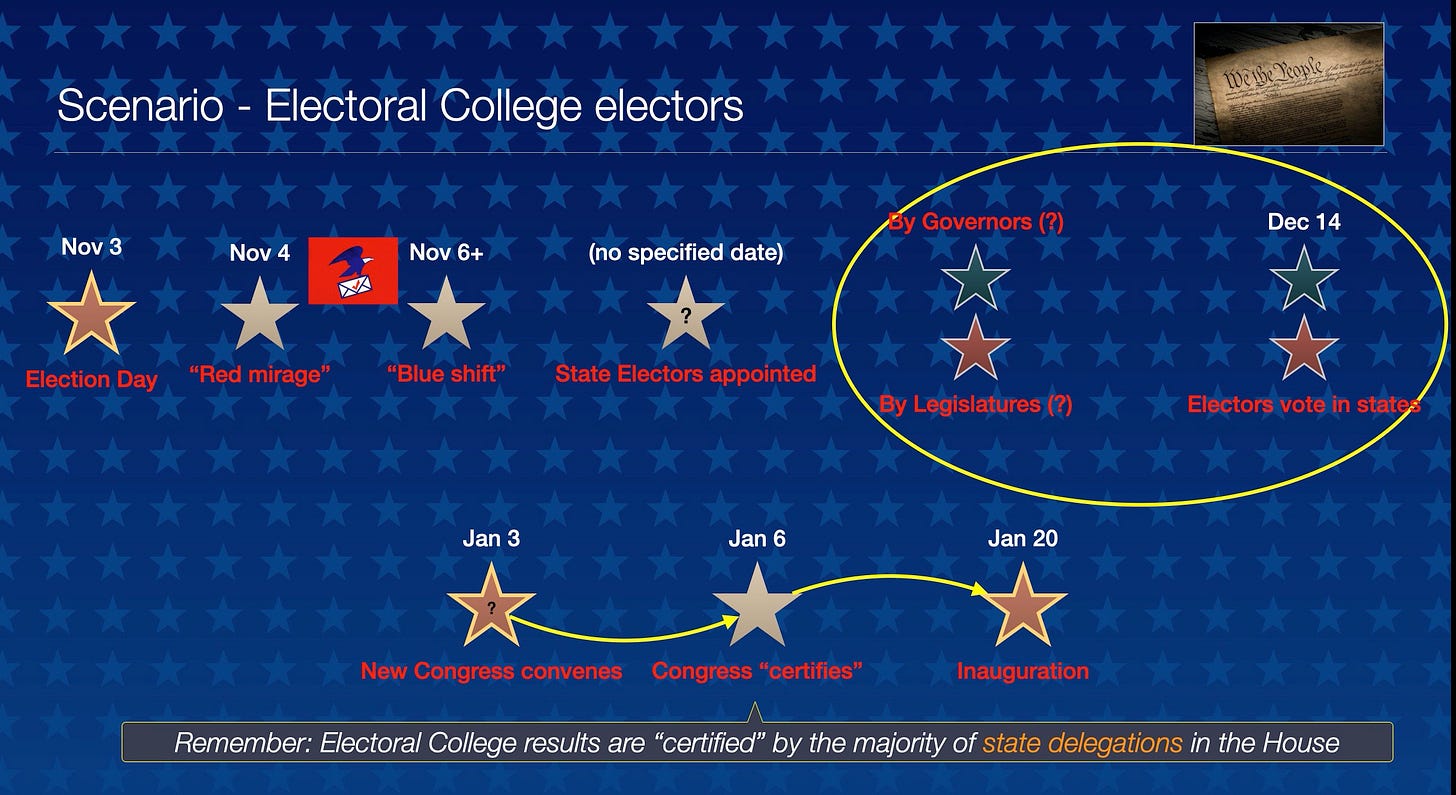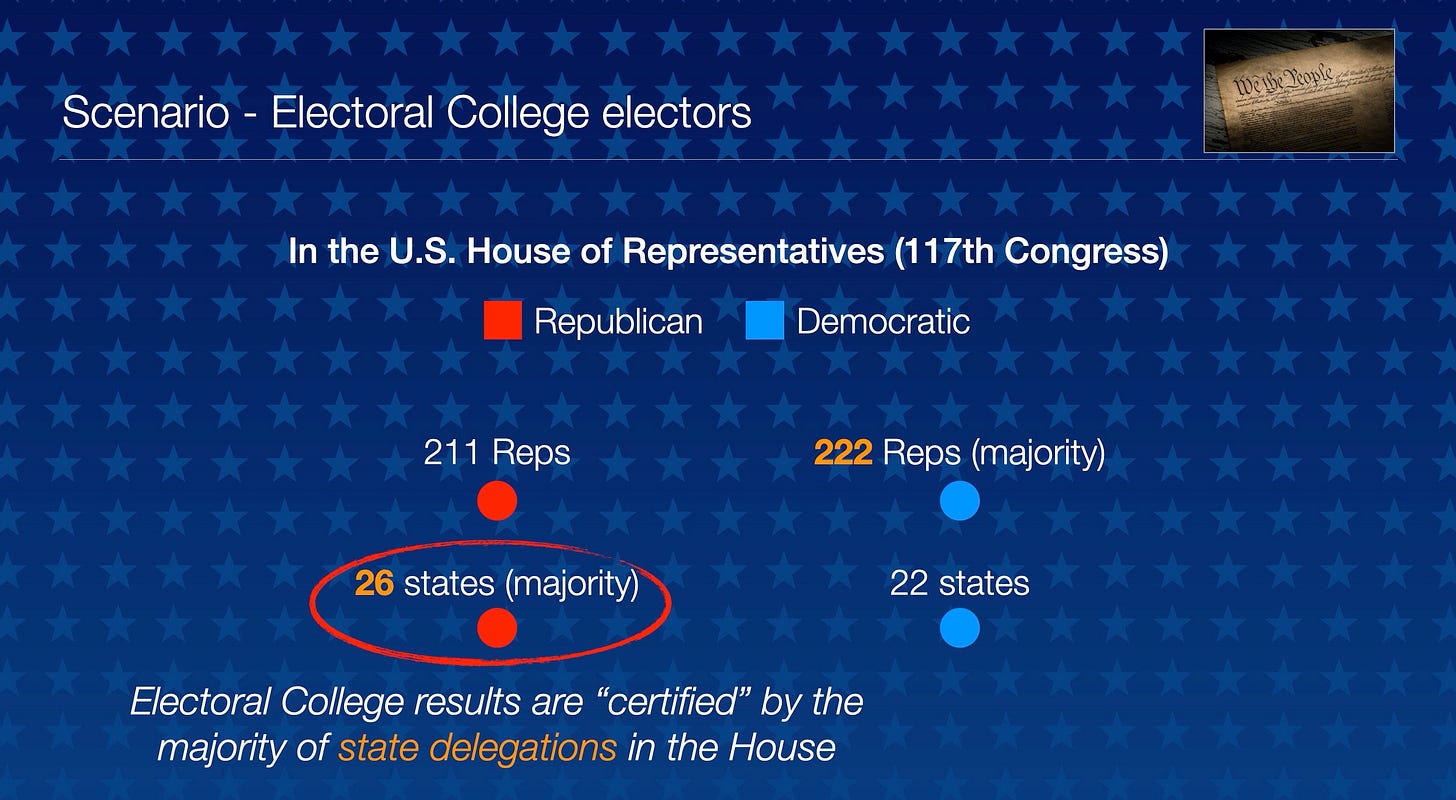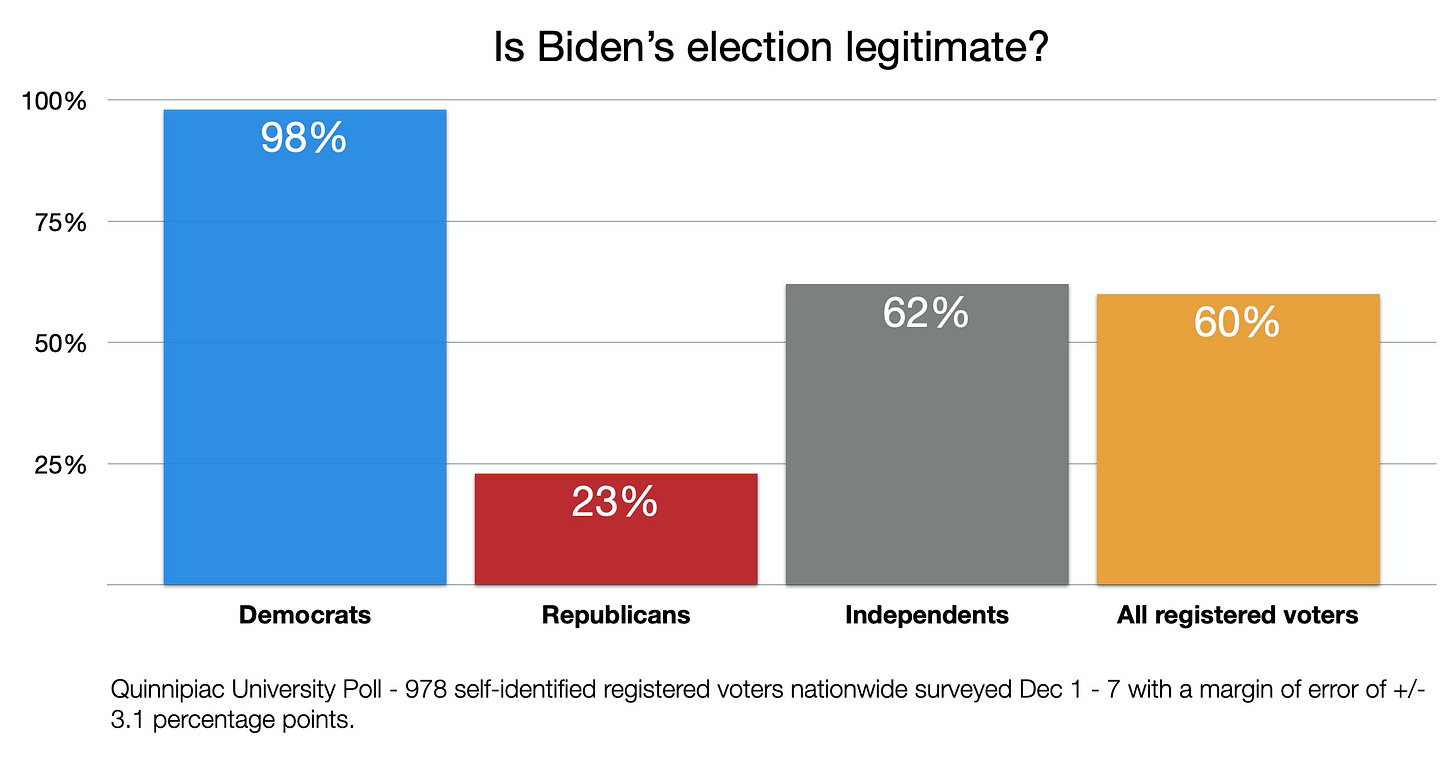Beyond Dec 14 - Electoral College voting day
The outcome of the election is no longer in doubt; the future of elections in the U.S. is.
Although it’s not over until the fat lady sings, Monday, December 14 is the day Electoral College electors from all 50 states cast their formal votes electing Joe Biden President of the United States.
The court challenges are all done at the state level, having been resoundingly put to bed last Friday night by the Supreme Court’s unusually blunt refusal to even hear arguments by Republicans who want to “OVERTURN” (President Trump’s word) the election. Biden won 306 electoral votes to President Trump’s 232, a margin Trump himself called “a landslide” when he scored the same result in 2016. The popular vote in 2020 put Biden more than 7 million votes ahead of Trump, more than twice the margin Trump scored in 2016.
But there are still twists and turns on the toboggan ride toward Inauguration Day. None of them will “overturn” the 2020 election, but they will give us a clearer view of how the Republican Party might behave in the four years leading to the 2024 election.
Once the electors have formally cast their votes in each state on Monday, those results must be reported to the House of Representatives, which is where, on January 6, 2021, the House finalizes the election in accordance with the Constitution and laws.
Remember that in Michigan, Pennsylvania and Wisconsin, Republicans hold the majority in state legislatures, while Democrats hold the governorship. In all of those states, both Republican and Democratic state leaders have publicly pledged to “report” to Congress the electoral college results which were decided by the voters on November 3, that is, to vote for Biden.
But Republicans who have tried every avenue since November 3 to defy the vote of the American people, could still maneuver to prevent the battleground states from “reporting” the election’s actual results to the House. (In Georgia and Arizona, Republicans control the Governorship and both houses of the state legislatures.) So watch for possible efforts to substitute the real results of the Electoral College vote with “alternate” results.
Those would be “Hail, Mary” efforts. I do not think they will succeed, just as I did not believe the court challenges would succeed in denying the actual election results. They might not even be attempted. But they could make for a few more nail-biting moments in the three weeks remaining in December, before the new, 117th Congress takes office in January.
And on January 6, watch for last-ditch attempts to prevent the House from formally certifying Biden’s election, with parliamentary maneuvers possibly based on the fact that, in the House, Republicans control the majority of state delegations (even though Democrats hold the majority of votes).
Even though any last-ditch attempts to deny the outcome of the 2020 election won’t succeed, they may offer a window onto how the majority of Republican officials in the United States could conduct themselves after Biden assumes the presidency.
Will Republicans continue to follow Trump’s lead undermining the validity of elections in the United States? Or will they decide that Trumpism could hurt their own chances of winning elections in 2022 and 2024? (After all, although Trump lost by “a landslide” in 2020, other Republican officeholders won their down-ballot elections, including gaining almost a dozen seats in the House of Representatives and holding a narrow lead in the Senate.**)
Predicting Republican behavior over the next four years is risky. But two data points are interesting:
A Quinnipiac University poll released last week shows that only 23 percent of registered Republican voters say they believe the legitimacy of Biden’s victory. (The same poll reveals that almost half of all white men who are registered to vote - not just Republicans - believe the legitimacy of Biden’s win.) That’s a lot of Americans who say they doubt the legitimacy of the 2020 election.
The Trump campaign organization has raised more than $200 million since the election, almost completely on the back of his “overturn” the election campaign. This is a significant reason why so many GOP elected officials have publicly bought into his anti-election effort. They need his money - his ability to wring ever more contributions from his political base - for their own political futures. They can’t afford to alienate Trump or his base. And although many acknowledge his claims of election fraud are baseless, these Republican officials know it’s a low-risk position they can take. Support Trump now to avoid his wrath later, even though they know supporting the fraud campaign won’t succeed.
Some elected Republican officials have even gone so far as to threaten secession from the union. Boston College historian Heather Cox Richardson noted this weekend that the secession threat is almost identical to the South’s position at the start of the Civil War. She added:
“The Republican Party has become a dangerous faction trying to destroy American democracy.”
(By the way, I very highly recommend Richardson’s daily commentary, which you can sample here, if you like.)







You always explain things so clearly and logically, and you take the emotions out of tricky situations. Thank you for that!
Thanks. Already some Republican state legislators are proposing to introduce bills to curtail vote-by-mail. I’m afraid, if we aren’t vigilant and vocal, voting will be much different and much harder for POC, the poor, the elderly and the disabled going forward.
Trump has a limited attention span, like most toddlers; my prayer is that he finds a new obsession soon.